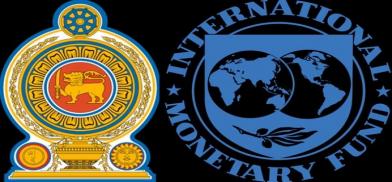The International Monetary Fund (IMF) urges Sri Lanka to implement an ambitious fiscal consolidation that is based on high-quality revenue measures which consist of raising income tax and VAT rates and minimizing exemptions, complemented with revenue administration reform.
The Executive Board of the International Monetary Fund (IMF) concluded Article IV consultation1 with Sri Lanka on February 25, 2022.
The IMF highlighted that the country’s economic outlook is constrained by its debt overhang as well as persistently
large fiscal and balance-of-payments financing needs.
“GDP growth is projected to be negatively affected by the impact of the FX shortage and macroeconomic imbalances on
economic activities and business confidence. Inflation recently accelerated to 14 percent (y/y) in January 20223 and is projected to remain double-digit in the coming quarters, exceeding the target band of 4–6 percent, as strong inflationary pressures have built up from both supply and demand sides since mid-2021. Under current policies and the authorities’ commitment to preserve the tax cuts, fiscal deficit is projected to remain large over 2022–26, raising public
debt further over the medium term. Due to persistent external debt service burden, international reserves would remain inadequate, despite the authorities’ ongoing efforts to secure FX financing from external sources,” it pointed out.
Therefore, the Directors emphasized the need for an ambitious fiscal consolidation that is based on high-
quality revenue measures.
They also encouraged the authorities to reform state-owned enterprises and adopt cost-recovery energy pricing.
Directors also agreed that a tighter monetary policy stance is needed to contain rising inflationary pressures while phasing out the central bank’s direct financing of budget deficits. They also recommended a gradual return to a market-determined and flexible exchange rate to facilitate external adjustment and rebuild international reserves. Directors called on the authorities to gradually unwind capital flow management measures as conditions permit.
Directors welcomed the policy actions that helped mitigate the impact of the pandemic on the financial sector. Noting financial stability risks from the public debt overhang and sovereign-bank nexus, they recommended close monitoring of underlying asset quality and identifying vulnerabilities through stress testing.
Directors welcomed ongoing legislative reforms to strengthen the regulatory, supervisory, and resolution frameworks.
Directors called for renewed efforts on growth-enhancing structural reforms. They stressed the importance of increasing female labor force participation and reducing youth unemployment.
Further efforts are needed to diversify the economy, phase out import restrictions, and improve the business and investment climate in general. Directors also called for prudent management of the Colombo Port City project and continued efforts to strengthen governance and fight corruption. They noted the country’s vulnerability to climate change and welcomed efforts to increase resilience.

